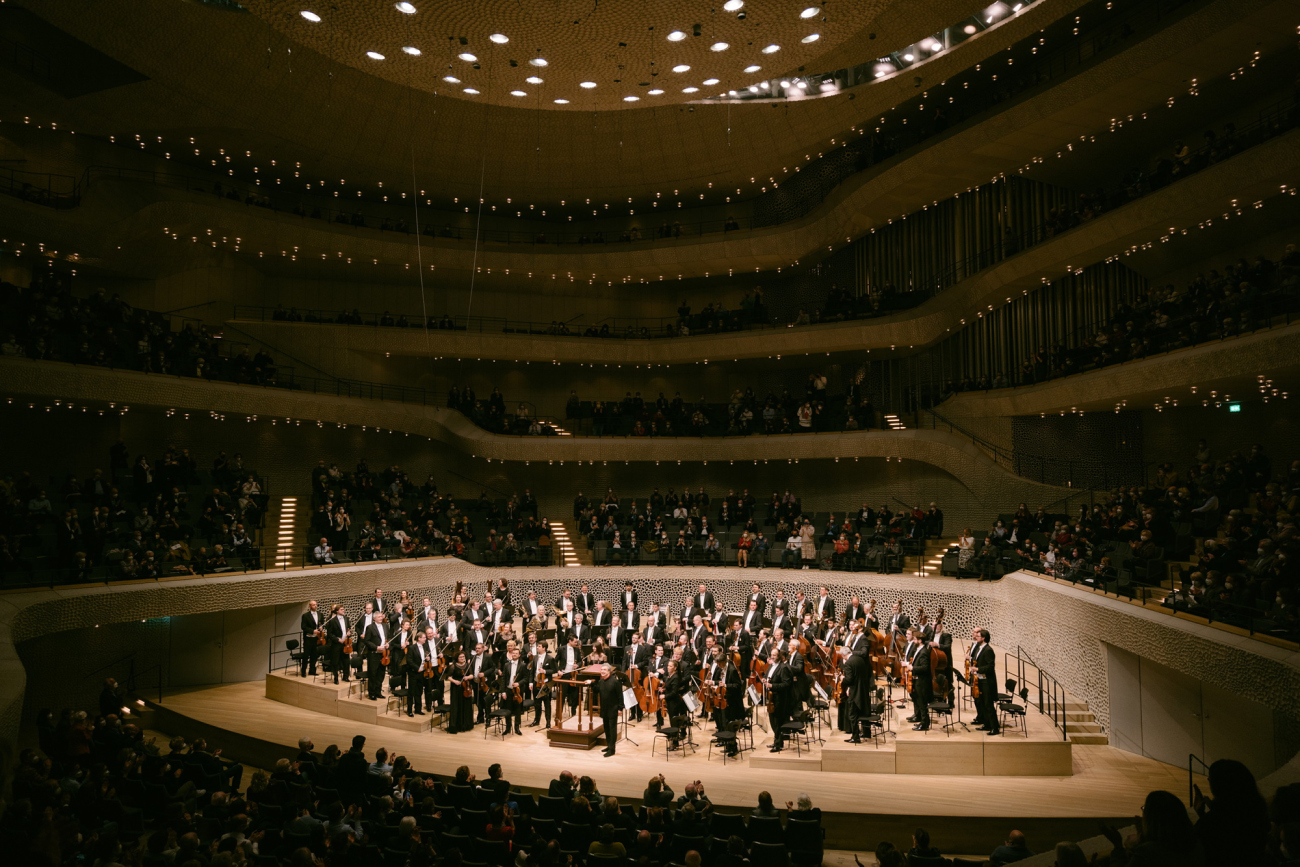
Labská filharmonie is an amazing building according to the musicians
 |
| Concert of the Czech Philharmonic at the Elbphilharmonie on March 11, 2022 (photo: Daniel Dittus) |
Hamburg – The Elbphilharmonie building in Hamburg, which is currently hosting the Czech Philharmonic, is a landmark of the port city. This unique construction, opened five years ago on the banks of the Elbe, is a visitor magnet and concerts at the Elbphilharmonie, nicknamed "Elphi" (a shortening of its German name Elbphilharmonie), are hopelessly sold out. However, its large hall, which accommodates up to 2100 listeners, can be problematic for some musicians.
"From my perspective, the sound here is dangerous. The hall is loud and one has to be careful for soft dynamics to come through. It depends on where you sit. If you're on the edge, you might not hear what the violins play on the other side. I have to rely on what the conductor shows, even though some of us tend to play by ear," said cellist Jan Holeňa to ČTK. "But everyone will say something different about the hall depending on where they sit and what instrument they play," he added.
His colleague, bassoonist Ondřej Šindelář, believes that while the concert hall in Prague's Rudolfinum is acoustically more balanced, in the Elbphilharmonie the listener hears individual nuances. "But it sounds nice here," he adds.
The building also includes a hotel, apartments, smaller concert halls, and restaurants. A notable feature of the structure, which also involved the Czech glassworks Floriánova huť in its interior design, is the observation platform located 37 meters above the ground. "The building is beautiful, monumentally rising by the river. It's futuristic, one feels like they're in some spaceship. Regarding the stage, it's an arena-type concert hall. While in Prague's Rudolfinum the audience has the stage in front of them, here it is in the middle. I think it's interesting for listeners who have the chance to hear the orchestra from various sides," says Šindelář.
Holeňa also likes the Elbphilharmonie building but points out certain impracticalities from the perspective of the performing musicians. "For example, when leaving the stage, the dressing room is on the other side. When I need to go for strings, tune up, or use the restroom, I have to go through three coded doors," he noted.
Both members of the Czech Philharmonic agree that a similar concert hall is lacking in Prague. "The Rudolfinum is a beautiful hall with great sound, but it's small, which is a problem for organizers and for us. For concerts to be financially viable, they need to be repeated, which creates less space for other orchestras that would also like to play there," stated Šindelář.
According to Holeňa, the stage in the Rudolfinum is not designed for large works such as those by Gustav Mahler or Anton Bruckner. "All major cities have concert halls for more than 2000 people; we need something like Suntory Hall in Tokyo," he declared.
The English translation is powered by AI tool. Switch to Czech to view the original text source.
0 comments
add comment








